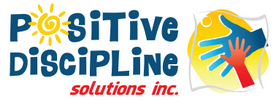When do Kids “Know” the Meaning of “No” (Con’t)
 Understand that you may need to teach your child many things over and over before he/she is developmentally ready to understand. Be patient. Minimize your words and maximize your actions. Don’t take your child’s behaviour personally and think your child is mad at you or bad or defiant. Remain the adult in the situation and do what needs to be done without guilt and shame.
Understand that you may need to teach your child many things over and over before he/she is developmentally ready to understand. Be patient. Minimize your words and maximize your actions. Don’t take your child’s behaviour personally and think your child is mad at you or bad or defiant. Remain the adult in the situation and do what needs to be done without guilt and shame.
Your job at this age is to think of yourself as a coach and help your child succeed and learn how to do things. You’re also an observer, working on learning who your child is as a unique human being. Never underestimate the ability of a young child. But on the other hand, watch carefully as you introduce new opportunities and activities and see what your child is interested in, what your child can do, and what your child needs help learning from you.
Safety is a big issue at this age, and a parent’s job is to keep their child safe without letting their fears discourage him/her. For this reason, supervision is an important parenting tool. And when parents understand that young children don’t really understand “no” the way they think they should, it makes sense to use distraction and redirection away from inappropriate or unsafe behaviour by showing what he can do in a kind and firm manner.
Understanding age-appropriate behaviour can relieve a lot of pressure for both the parents and children involved. When parents change their expectations about the “perfect child who obeys their every command” they can begin to enjoy their child’s experimentation with autonomy and initiative. Remember, as a parent, your attitude determines whether or not you will create a battle ground or a kind and firm atmosphere for your child to explore and develop within appropriate boundaries.
Based on the Positive Discipline series by Dr. Jane Nelsen and co-authors
